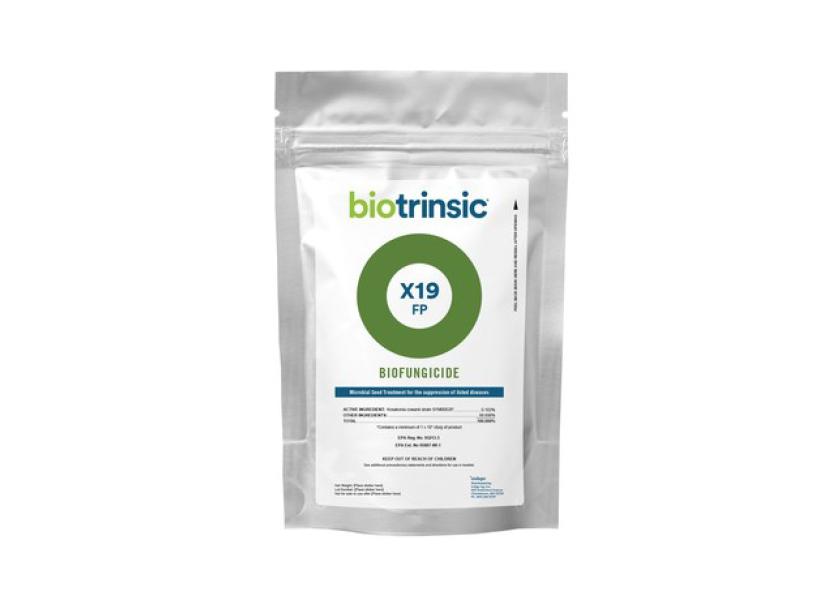Indigo Announces New Biofungicide Seed Treatment

For the 2023 growing season, Indigo is bringing forward the first commercial launch of a biological fungicide based on the microbe Kosakonia cowanii.
Registered as biotrinsic X19, the fungicide seed treatment addresses both biotic and abiotic stress.
Indigo boasts biotrinsic x19 has three modes of action to help protect against disease.
First, Formulated with living organisms, biotrinsic X19 grows along with the plant, colonizes its roots, and expands the area protected against disease.
Second, when the x19 microbes encounter mycelium or hyphae of targeted seedling disease pathogens, use Bioblocker action to rapidly surround the mycelium and form a microbial wall of separation between plant roots and the seedling disease.
Third, biotrinsic X19 achieves induced systemic resistance and root colonization with just a single active ingredient.
“We know farmers are always looking for new and better ways to raise the healthiest and most profitable crop and biotrinsic X19 can help farmers do just that,” said Peter Bunce, Commercial Head of Biologicals at Indigo Ag. “A breakthrough biofungicide that sets an uncompromising new standard for managing key seedling diseases in corn and soybean acres, biotrinsic X19 works by empowering the plant’s natural disease management processes.”
Indigo cites replicated university trials showing biotrinsic x19 having average yield increases of 2.6 bu/acre for soybeans and 8.6 bu/acre for corn.
“Anytime we can help plants protect themselves using natural elements, rather than introducing synthetic elements, it’s a benefit to both the plants and the soil,” said Jake Hoalt, co-founder and owner of Xceleration Ag, an Illinois farmer and ag retailer, who trialed the X19 product as part of biotrinsic Beta Fields, a program offering free and early access to some of the latest biological technologies to improve crop resilience.
Biotrinsic x19 can be used along or in conjunction with other fungicide seed treatments or select pesticide seed treatments.







